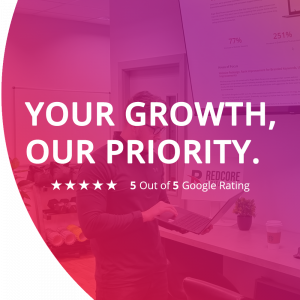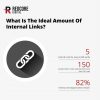As Digital Marketing becomes a popular field of work it’s important to know where it began and how far it’s come. From the beginning of the internet to today’s industry, we explain the transformation from traditional marketing to digital marketing.
The term “Digital Marketing” has evolved through the decades, but what does it really mean? Well, Digital Marketing means Marketing that is delivered solely through online formats such as social media and web pages.
Unfortunately, even due to the ever-growing internet presence, paid advertisements weren’t used commonly until 2005, although you could pay for your page to appear within the SERP directory. Paid advertisements were first used by Google which is no surprise! Once Google had begun showing consumers the world of paid advertisements it wasn’t long before others followed in their footsteps, this includes Linked-In and Facebook. Although this was a step in the right direction there was still time before Digital Marketing took off. Finally, between 2010 and 2012 social media platforms Twitter and Instagram began to offer a pay-per-click advertisement service to businesses.
One of the biggest factors in the evolution of Digital Marketing is the growth of E-Commerce, without online shopping platforms the digital marketing industry would definitely be a few steps back.
Why is Digital Marketing effective?
A comprehensive Digital Marketing strategy is so effective due to the growth in technology and the easy accessibility to technology. 57% of the UK population own at least one laptop within the household. According to a survey conducted this year, it was suggested that other than a mobile phone, the most used technology is a tablet computer.
Digital Marketing is effective because everyone spends a large majority of their time online, we are influenced by what we see whether we like to believe it or not. There are several reasons why Digital Marketing is so effective:
1. Accessibility anytime, anywhere
If we compare Digital Marketing to more traditional types of media advertising such as television or newspaper, we can begin to see the restrictions and niche audiences marketers had to contend with. The amazing part of Digital Marketing is accessible to mass audiences any time anywhere, the power to influence is right at our fingertips.
2. Personalisation
Digital Marketing has created the ability to reach both mass and niche audiences from many different places, this is due to the personalisation and the deeper connections built with the consumer, even without speaking directly with them. Without the ability to create personalised ads, it could lead the consumer to feel like just another number.
3. Growth of E-Commerce
Online shopping has grown dramatically within the last few years, part of this is due to the Covid-19 pandemic. It is estimated that ”The UK alone has nearly 60 million E-Commer users” Due to this growth Digital Marketing is at an all-time high.
What is SEO in Digital Marketing?
Digital Marketing is becoming a popular career path but sometimes it can be misconstrued, when people hear about people working in the Digital Marketing industry they think everyone works in social media advertisements or paid ads.
Search engine optimisation (SEO) is the single most effective way to improve your business’s visibility online. It gives your website the ability to rank higher on search engine results pages, meaning you get more traffic, more leads and more sales.
One type of Digital Marketing that most people are unaware of or don’t know much about is SEO. The practice of SEO is to optimise your website, and its surrounding entities, to perform better through search engines such as Google, Bing, Yandex etc. Whilst the list of optimisation practices within today’s typical SEO strategies is almost endless, the priority focus points are usually:
- Technical SEO – Making sure Google can index your site without errors
- Content Marketing – Drafting an ongoing content strategy to consistently demonstrate why your website is an expert in the industry
- Keyword Research – Intelligent use of high-value keywords is essential to SEO
- Link Building – building a comprehensive backlink profile to your website demonstrates to Google that your website is a relevant source within the industry
Creating and deploying a complete SEO strategy requires expert knowledge and a keen eye for detail, which is often why companies and organisations lean towards outsourcing their requirements to an SEO Agency.
TL;DR
Although it took a while for the industry to take off, once it did it revolutionised the way marketing is distributed and opened up the world of E-Commerce and it is still ever-growing. Unfortunately due to the fast-paced industry, it’s difficult to know where it could go in the future.









